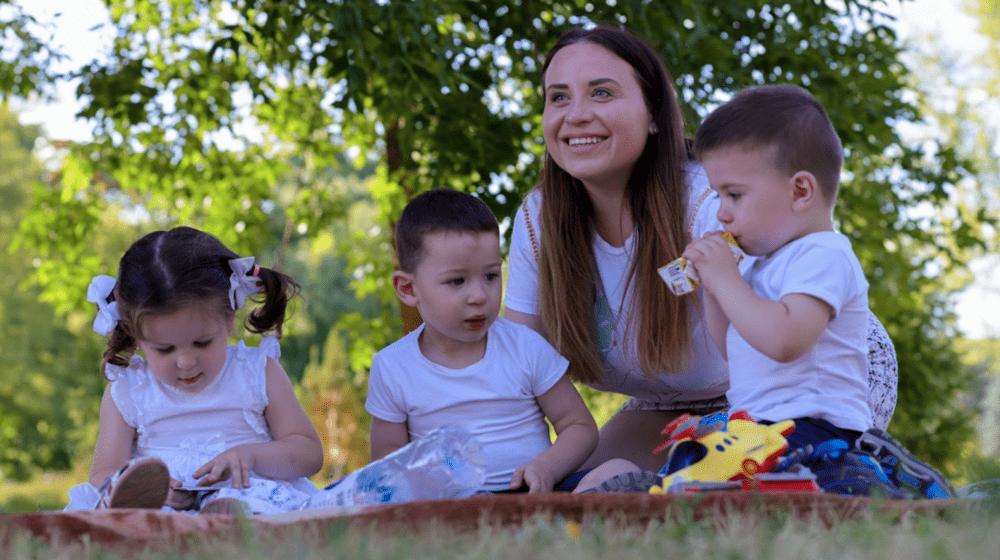When Diana Donțu, in Moldova, found out she was pregnant with triplets, she asked her boss for flexible working arrangements. He agreed — these had become more familiar during the COVID-19 pandemic, and it made good economic sense to retain skilled employees. Donțu worked from home after the births and later went back to the office three days a week as executive director of Panilino, a cake factory. “Without these policies, I would have had to find another company, or stay at home,” she said.
And as her children grew older, Donțu was able to send them to a new day-care centre on Panilino’s premises. “Now if something happens to one of my children while I am at work, I can simply go over and see them,” she said.
Her experience is an exception rather than the rule in this region, where women often have to choose between career and family. A recent survey, conducted by UNFPA and Ministry of Labour and Social Protection of the Republic of Moldova, revealed 9 in 10 women with children under 3 stay home. The scarcity of family-friendly policies has had knock-on effects: people often have fewer children than they want, pushing birth rates down. In addition, businesses — already grappling with a shrinking pool of workers due to outmigration — fail to benefit from the skills of women who are unable to re-enter the labour force after giving birth.
Through a programme funded by Austria that supports gender- responsive family policies in Moldova and the Balkans, UNFPA advised Panilino executives on how to develop family-friendly workplaces and provided a grant to help open the day-care centre. Evidence shows that such policies — both at the national level and those implemented by the private sector — are powerful tools to shift discriminatory gender norms and redistribute unpaid care work so that both men and women can realize their career aspirations without foregoing having children. While the principal aim is to allow more people to balance work and family life, it also helps ease the pressure on young people to seek job opportunities outside of the country.

Albania is another country in the region adopting family-friendly policies, which include generous parental leave benefits — for women and men alike. But even though paternity leave is now available, few men choose to take advantage of it. In South-Eastern Europe, only 3 per cent of men say they have taken paternity leave.
Ardit Dakshi’s experience suggests at least one reason why. His job as a systems engineer in Tirana made it easier for him to work from home when his wife gave birth to twins. “In the beginning, my co-workers laughed at me,” he said. However, he added, “When my colleagues saw all the benefits, they started using paternity leave too.”
The populations of many countries in Eastern and Central Europe are falling quickly. Some governments are worried that without more births, and in the absence of immigration, their economies will falter, and there will not be enough young workers to contribute to social support systems on which their ageing populations depend.
Some countries have resorted to government incentives to encourage people to have more children. Incentives vary widely and include payments to families who have more children, tax breaks for larger families, housing and car subsidies, and also awards for mothers with more than five children, and experience with “baby bonuses” shows that cash incentives or tax credits by themselves, particularly when they are modest, have a negligible impact on fertility rates in the long run.
A more resilient approach helps couples reconcile work and family to have the number of children they want.
Data and studies support the value of having workplaces that are family friendly and parental leave that is generous and equitable; in these conditions, women have more job opportunities and men share household tasks.
“Taking paternity leave and connecting with my daughters is the single most important thing I’ve ever done in my life,” said Dakshi.
As Donțu takes a Zoom call, her son Alexandru climbs onto her lap. “He was a bit sick today so I brought him to the office. I could not do this without these family-friendly policies.”
For Donțu and Dakshi, flexible and adaptable working conditions have made all the difference.


